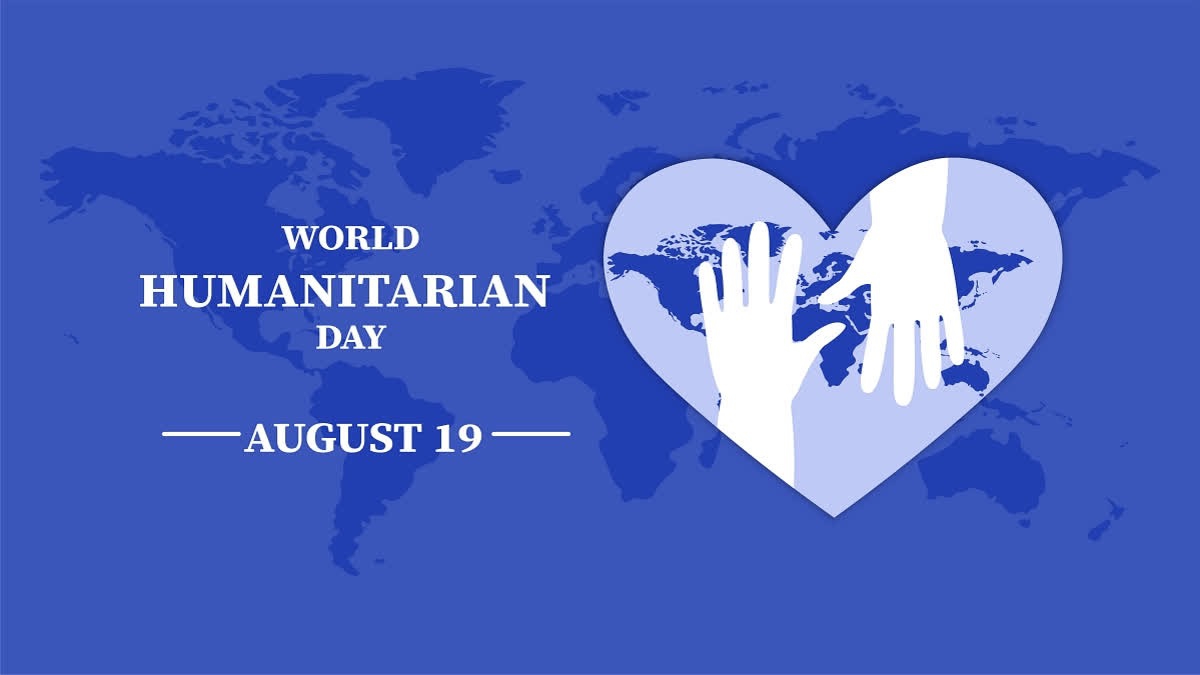Eduard Abashia, a lecturer in the Department of Psychology at the Dnipro Institute of PJSC "IAPM", a lawyer, psychologist at the Amur-Nizhnodniprovsk district branch of the State Institution "Probation Center" in Dnipropetrovsk region, and a member of the International Association of Psychologists and Consultants on Sexual Education, informs about the following. The United Nations General Assembly, through its resolution (A/RES/63/139), established World Humanitarian Day, observed annually on August 19th, to pay tribute to humanitarian aid workers who risk their lives while providing humanitarian assistance, and to gather support for people affected by crises worldwide.
Twenty-one years ago, as a result of a bomb explosion at the Canal Hotel in Baghdad, Iraq, 22 humanitarian workers were killed, including the UN Secretary-General's Special Representative in Iraq, Sergio Vieira de Mello, and hundreds were injured. This tragedy fundamentally changed the way humanitarian organizations operate - from being welcome guests to becoming targets.
World Humanitarian Day was first observed on August 19, 2009. Each year, World Humanitarian Day focuses on a specific theme, bringing together partners from across the humanitarian system who advocate for the survival, well-being, and dignity of people affected by crises, as well as for the safety and protection of humanitarian workers.
This day aims to raise awareness about the work of humanitarian workers, the challenges they face, and the importance of providing assistance to those in need, regardless of their background or location.
World Humanitarian Day is dedicated to the selfless heroes who sacrifice their lives to serve humanity. Humanitarians are people who have no other purpose than to protect society and help it live better. And every year on August 19, the world comes together to celebrate the honorable work of humanitarian workers.
As stated on the UN website, "Humanitarian workers are united by a common mission - to save and protect lives. They never compromise on humanitarian principles and always strive to make the best decisions for the people they serve."
Last year was the deadliest for humanitarian workers worldwide. According to the Humanitarian Worker Security Database, in 2023, nearly 600 humanitarian workers were subjected to violent attacks, kidnappings, harassment, intimidation, or threats, including 280 people killed in the line of duty.
Unfortunately, this year is already becoming even more deadly for humanitarian workers. In just over eight months of 2024, we can see even higher numbers: to date, 173 deaths have been recorded - an alarming upward trend that shows no signs of stopping.
The majority of those killed last year were responding to the conflict in Gaza, which the United Nations recently declared "the most dangerous place in the world for humanitarian workers."
These facts reveal a glaring truth: the world is unable to provide security for humanitarian workers and, as a result, for the people they serve.
According to the United Nations, the work of humanitarian workers is crucial against the backdrop of global threats of terror and violence that are growing every day.
From Syria to South Sudan, from the Maldives to the starving regions of Africa - the work of humanitarian workers is crucial. In the face of crisis, terror, and violence, millions of people around the world struggle daily for the most basic necessities - food, water, healthcare, and education. To help these people and give them a chance for salvation, the importance of events such as World Humanitarian Day is growing.
From the occupied Palestinian territory to Sudan, Myanmar, and other countries, the first half of 2024 was characterized by attacks on health, education, water, and sanitation facilities, which left millions of people without access to the services they need to survive.
5.6 million people in Ukraine received humanitarian aid in the first half of 2024, and humanitarian organizations organized 23 convoys to front-line areas. Civilians and civilian infrastructure in front-line regions continue to suffer from hostilities, and shelling throughout Ukraine affects residents of urban centers.
Despite generally recognized international norms and laws governing the conduct of armed conflicts and limiting their impact, violations of these laws continue unabated, unhindered, and uncontrolled.
And while civilians, including humanitarian workers, pay the highest price, perpetrators continue to evade justice. The sale of humanitarian aid goods, or the use of charitable donations, free aid, or other transactions involving such property for profit, must be stopped, and those involved in these criminal, fraudulent actions must be punished. This inaction by those in power cannot be allowed to continue. Attacks on humanitarian workers and humanitarian cargo must stop. Attacks on civilians and civilian infrastructure must stop, the psychologist noted.
 Eng
Eng  Укр
Укр 